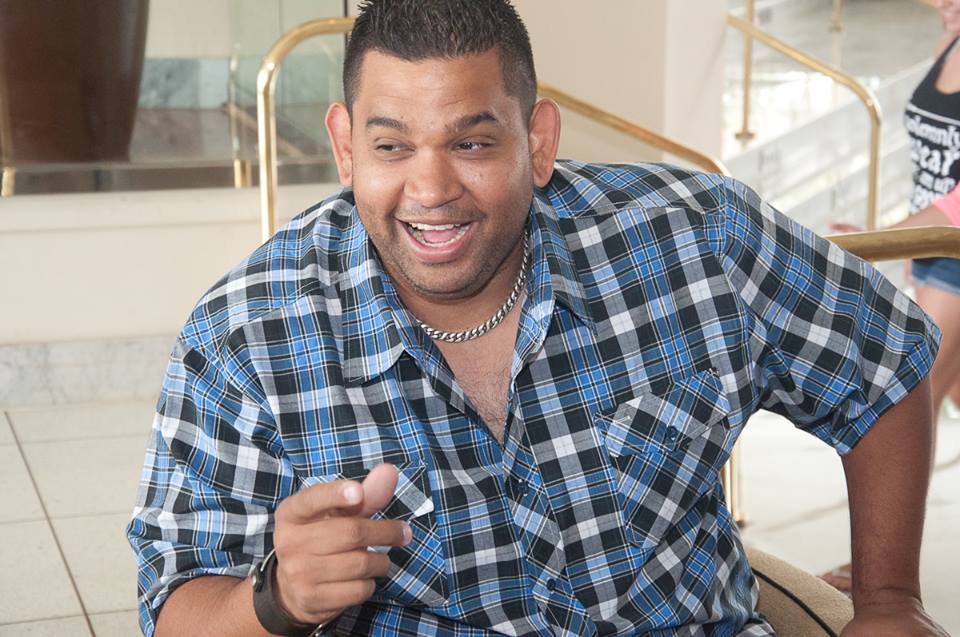
This is Part I of a three-part Beachmonkey series on Rod Carrillo, owner of Carrillo Music, and two of his clients, singer Eric Redd and DJ/producer Kissy. It is based upon a sit-down interview I did with the three of them during the Winter Music Conference.
Photos: Eric M
We were in the lobby of the Deauville Hotel, just north of SOBE. Eric and Kissy had only just met, but both of them were happy to do an interview with Rod and me. Eric was in a dress shirt and suit, open cuffs and collar, dreadlocks tied back but never completely tamed. Kissy was in a tank top, blue blazer, and baseball cap, a touch of street and a haircut with severely short sidewalls and a comb-able length of straight hair on the upper cranium that was only revealed when he adjusted his cap. Rod was totally casual in a short-sleeve shirt, untucked.
The topics ranged from A to Z: Miami EDM in the late '90s, Soul Train, legal training, doing porn soundtracks, astrophysics, K-pop, and the origins of dubstep. One question came forth: What does it mean to be “On Your Game”? and that question became a recurring theme.
With that in mind, let us give the mic to Rod Carrillo, the man who brought the three of them together.

Tell us when and how you met Eric and Kissy.
Eric and I met in Miami when I was speaking on a panel at WMC. Shortly after that, we ran into each other in New York. A couple of months later, we met at my studio and created his first hit, “Breathe.” Kissy and I met when a friend suggested I should sign some of his music. We expanded our work together, and now I am full time member of his team and over see his A & R. and business affairs.
What makes Carrillo Music different from other companies?
We differ in the fact that we are willing to take chances and risks when others don’t. I feel like when you believe in someone, it is all about coming up with ideas to support that individual whether they are an artist or business professional. I have tried to build this company with educated, talented, risk-taking individuals that want to push against the status quo.
Does pushing against the status quo include geekiness, a term you used when we spoke earlier?
What I mean as geekiness is the passion and drive that our team of artists possess. They infatuate themselves in learning and progressing in all facets of the music process. They look at the art and intellectualism of the music, and all have done so since a young age, often been ostracized because it.
I often think of us as a bunch of misfits that now are considered to be trendsetters and relevant in the now.
You also have experience as a performer in the dance music scene. Tell us about that, and how those experiences influence the way you run your company.
What has opened all the doors for me and this company has always been my ability to DJ. After the countless shows, tours, mix-shows, radio stations it was an easy transition into now running the label groups and the firms. It has facilitated me with having knowledge about the artistry, logistics and the reality of the music industry. Playing now also keeps me grounded to the streets as well.
Was Miami 1995-2001 an influential age, something like the Paradise Garage age in Manhattan? And was this an important time for you as well?
Without a doubt… Larry Levan, Shep Pettibone, Steve Hurley and Derrick May turned my world upside down when I heard their productions as youngster. I remember David Padilla at Warsaw on Saturday nights in Miami. That was an extra educational class to me during high school.

What does it mean to be “on your game,” and can you be on your game all by yourself?
To be “on your game” means to never grow complacent or rely solely on your talents to get you by. Just because you can sing does not mean you are going to make it. There are thousands of talented singers out there, but if you don’t have the drive or the tough skin, this is not for you.
Explain “I want them [your artists] to have a life.”
If you want to work with me or our team, it is important to us that the artist has a life. What I mean is that I want to work with people that know how to balance their lives. It is not all about music and it is important to have a personal life or outlet besides just music. I have found that people that have that balance almost always do better in this industry, simply because it keeps you grounded.
How much does your law background affect your approach to music?
My background in law is very helpful because it assures me that the business stays in the business of music for me, which is important.
Having a community allows an artist to take right risks. Is this a fairly safe assessment of one value of community?
Yes, it is in our case. I am an all-or-nothing person, so if I see the whole team trust the project or artist, we will go into it one hundred percent. Our team is very good in determining what risks or artists are worth the plunge. The team also knows when it is the right time to move away as well.


